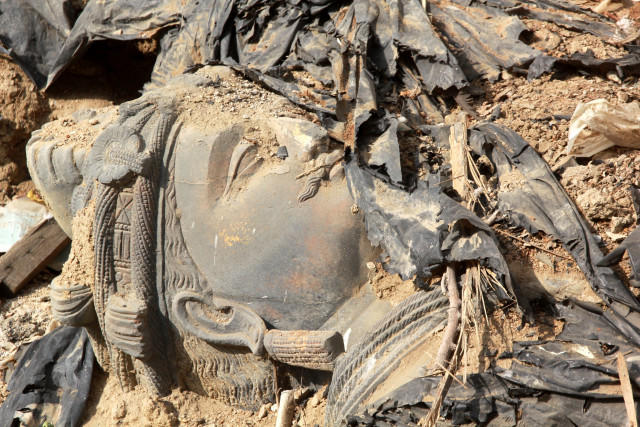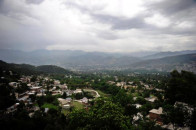Alvi for preservation of ancient sites
Says Pakistan can become popular destination for tourists

President Dr Arif Alvi on Monday said Pakistan was home to the world's ancient civilisations including Buddhism and called for making further efforts to preserve and promote religious tourism to bring different people of the world together.
Addressing an international conference on “Buddhism in Pakistan: history, archaeology, art and architecture,” at the Pakistan National Council of the Arts (PNCA), he said Pakistan was rich with Buddhist heritage and a large number of artefacts were found here, more than any part of the world.
“The Buddhism spread from the northern parts of Pakistan to Korea and Japan,” he said while tracing the various historic events. The president while underlining the need for the promotion of religious tourism, said more religious tourism exchanges could take place among people across the world.
He said recently, various delegations of vulnerable monks from Korea, Thailand and Sri Lanka visited Buddhist sites in Pakistan. The exchange of such delegations helped in the preservation of the historic sites, besides bringing people from different parts of the world closer, he said.
Read: Abbottabad district being beautified for tourists
The president said in Pakistan, the Indus Valley Civilization was rooted in Buddhism, besides Gandhara and Mohenjo Daro were the other beautiful sites of the early civilization.
He observed that olden civilizations always thrived on the banks of rivers and water reservoirs.
Sharing his personal experiences of visiting Thailand and Tibet and other Buddhist-rich cultural places, he said the preachings of Buddha were based upon a search for self.
About 50 speakers from different countries, including Thailand, Sri Lanka, Germany, the United States, Canada and Malaysia attended the conference, while 22 among them presented their research papers.
Ambassadors of Sri Lanka and Thailand along with a large number of representatives from the Buddhist-rich civilization countries were also present.
The president said that the search was unending as human beings grappled with worldly affairs. Human beings were a combination of contrasting desires, but the desire of doing good and to live with other human beings in harmony was dominant in human history.
The president regretted that the world was full of hegemonic attitudes as there was a struggle over 'mine and thine'.
He said Pakistan always talked and advocated for peace in the world. The president said tens of millions had died of wars in the world and stressed that going back to the peaceful traditions was very important. He said the basic instincts revolving around human exploitation, love and hate were deeply rooted in the human fabric.
He said the Buddha taught that in presence of worldly desires, there could not be peace and that message was reflected in the image of fasting Buddha.
Buddhism stressed upon curbing of desires in life to becoming familiar with other basic human emotions, he added.
Quaid-e-Azam University Vice-Chancellor Muhammad Ali highlighted the objectives of the international conference. He said the conference would help promote a soft image of Pakistan and boost religious tourism.
Prince Mian Gul Adnan Aurangzeb, a resident of Swat, whose family has been looking after the preservation and promotion of Buddhist sites, briefed the participants about the history and different historical sites at Swat and other parts of Khyber Pakhtunkhwa province, forming 'a golden triangle' of Buddhist sites up to Taxila. He also enumerated the steps taken for the preservation of these sites.
Published in The Express Tribune, March 15th, 2022.



















COMMENTS
Comments are moderated and generally will be posted if they are on-topic and not abusive.
For more information, please see our Comments FAQ